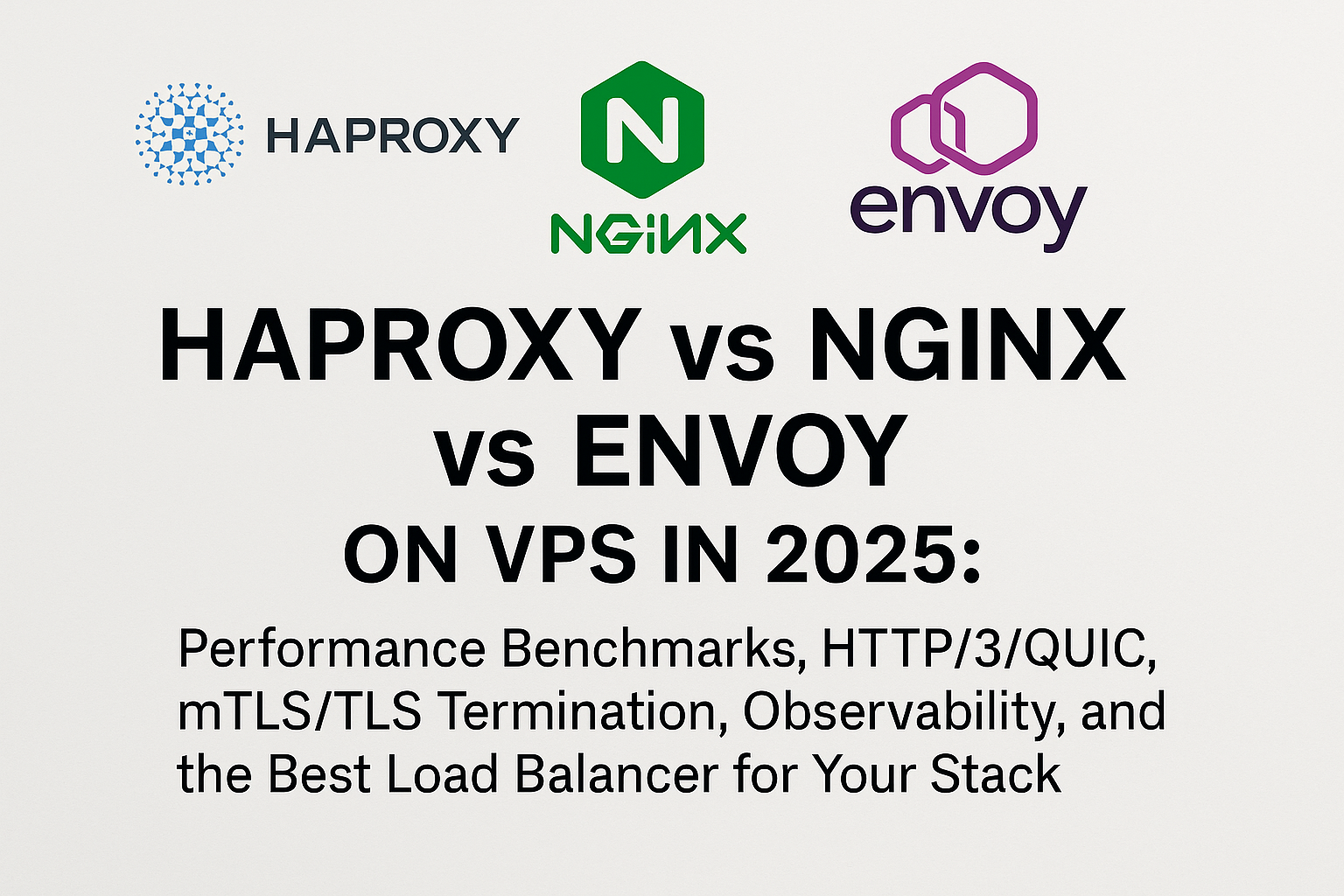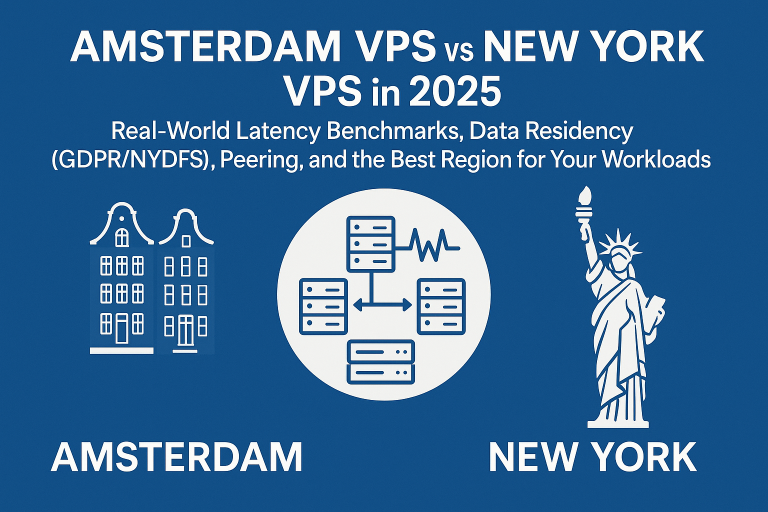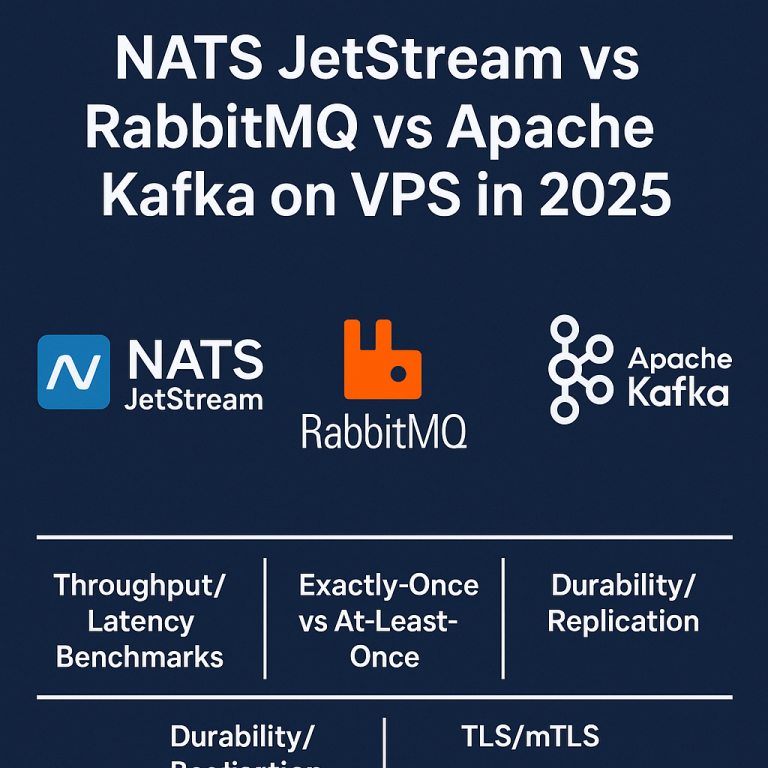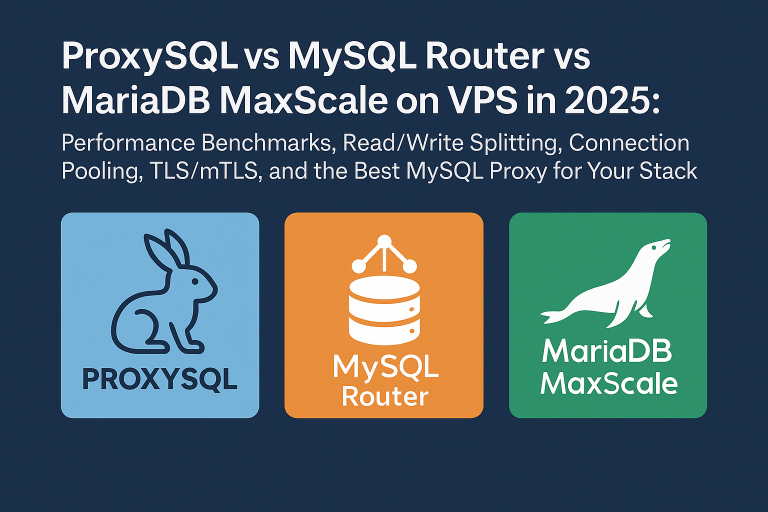Introduction
Choosing the right load balancer for your VPS deployment can significantly impact your application’s performance, security, and operational complexity. While Nginx vs Caddy comparisons often focus on web servers, the load balancing landscape in 2025 presents three distinct approaches: HAProxy’s pure load balancing expertise, Nginx’s versatile web server capabilities, and Envoy’s cloud-native service mesh integration.
This comprehensive comparison examines performance benchmarks, HTTP/3/QUIC support, mTLS/TLS termination capabilities, observability features, and practical deployment scenarios to help you select the optimal load balancer for your infrastructure needs.
Architecture and Design Philosophy
HAProxy: Pure Load Balancing Excellence
HAProxy remains the gold standard for dedicated load balancing, offering unmatched performance and reliability. Its architecture focuses exclusively on proxying and load distribution, making it incredibly efficient for high-traffic scenarios.
- Single-threaded event-driven architecture with exceptional CPU efficiency
- Advanced health checking and failover mechanisms
- Sophisticated traffic routing based on headers, cookies, and custom logic
- Built-in statistics and monitoring dashboard
Nginx: Versatile Web Infrastructure
Nginx combines web serving, reverse proxying, and load balancing in a single solution. Its modular architecture allows for extensive customization while maintaining excellent performance characteristics.
- Multi-worker process model with async I/O handling
- Comprehensive HTTP/HTTPS processing capabilities
- Extensive third-party module ecosystem
- Built-in caching and compression features
Envoy: Cloud-Native Service Mesh
Envoy represents the modern approach to load balancing, designed specifically for microservices and service mesh architectures. Its feature-rich design targets complex distributed systems.
- Multi-threaded C++ architecture with advanced traffic management
- Native support for service discovery and dynamic configuration
- Comprehensive observability with distributed tracing
- Advanced security features including mTLS automation
Performance Benchmarks
Performance testing on high-performance VPS instances with AMD EPYC processors reveals distinct characteristics for each load balancer:
Throughput and Latency
HAProxy consistently delivers the highest throughput for HTTP/1.1 traffic, handling 50,000+ requests per second with sub-millisecond latency on a 4-core VPS. Its single-threaded architecture eliminates context switching overhead.
Nginx provides excellent performance across various workloads, achieving 40,000+ RPS while maintaining low memory usage. Its caching capabilities can significantly boost performance for static content scenarios.
Envoy shows competitive performance at 35,000+ RPS but requires more system resources. However, its multi-threaded design scales better on high-core-count systems, making it ideal for CPU-intensive workloads.
Resource Utilization
Memory consumption varies significantly: HAProxy uses ~50MB, Nginx requires ~80MB, while Envoy consumes ~150MB for similar configurations. CPU usage follows a similar pattern, with HAProxy being most efficient for pure load balancing scenarios.
HTTP/3 and QUIC Support
The evolution toward HTTP/3 and QUIC protocols presents different maturity levels across these solutions:
Nginx offers the most mature HTTP/3 implementation since version 1.25.0, providing stable QUIC support with comprehensive configuration options. This makes it excellent for modern web applications requiring low-latency connectivity.
Envoy includes experimental HTTP/3 support that’s rapidly improving. While not yet production-ready for all use cases, it shows promise for cloud-native environments where cutting-edge protocol support is valuable.
HAProxy currently lacks native HTTP/3 support, though it remains unmatched for HTTP/1.1 and HTTP/2 performance. Plans for QUIC implementation are in development.
mTLS and TLS Termination
Security capabilities, particularly TLS termination and mutual TLS, vary significantly:
Envoy excels in mTLS scenarios with automatic certificate management, integration with service mesh solutions like Istio, and comprehensive TLS configuration options. It supports advanced security features like post-quantum cryptography.
Nginx provides robust TLS termination with excellent SNI support and integration with Let’s Encrypt via tools like Certbot. Its SSL/TLS performance is exceptional for web-facing applications.
HAProxy offers solid TLS capabilities with efficient certificate handling and SNI support, though it requires more manual configuration compared to modern alternatives.
Observability and Monitoring
Modern applications require comprehensive observability capabilities, and each solution provides different approaches:
Envoy leads in observability with built-in support for distributed tracing, detailed metrics export to Prometheus, and integration with full observability stacks. It provides granular insights into traffic patterns and service behavior.
HAProxy includes comprehensive statistics via its built-in web interface and CSV exports. While not as modern as Envoy’s approach, it provides detailed operational insights that are sufficient for most traditional deployments.
Nginx requires third-party modules or external tools for advanced metrics collection, though its access logs provide valuable traffic insights that integrate well with log aggregation systems.
Deployment Scenarios and Use Cases
Choose HAProxy When:
- Maximum performance is critical for HTTP/1.1 and HTTP/2 traffic
- You need sophisticated load balancing algorithms and health checks
- Operating in traditional infrastructure with high availability requirements
- Resource efficiency is paramount on smaller VPS instances
Choose Nginx When:
- You need HTTP/3/QUIC support for modern web applications
- Requiring both web server and load balancing functionality
- Static content caching and compression are important
- Working with traditional web server deployments
Choose Envoy When:
- Building microservices architectures or service mesh deployments
- Advanced observability and tracing are requirements
- mTLS automation and service-to-service security are critical
- Working with Kubernetes and cloud-native stacks
Integration Considerations
Each load balancer integrates differently with modern infrastructure components. Envoy works seamlessly with service mesh solutions and container orchestration platforms. Nginx provides excellent integration with traditional web stacks and CDN solutions. HAProxy excels in database load balancing scenarios and traditional three-tier architectures.
For VPS deployments in Singapore, Sydney, or Amsterdam, consider latency requirements and regional traffic patterns when selecting your load balancing solution.
Conclusion
The choice between HAProxy, Nginx, and Envoy depends on your specific requirements and infrastructure complexity. HAProxy remains unbeatable for pure performance and traditional deployments. Nginx offers the best balance of features and HTTP/3 support for modern web applications. Envoy provides the most comprehensive solution for cloud-native and microservices architectures.
For 2025, consider your protocol requirements (HTTP/3), security needs (mTLS), and operational complexity. Each solution excels in its designed context, and the “best” choice aligns with your architectural goals and team expertise.
Ready to deploy your chosen load balancer? Onidel’s high-performance VPS instances with EPYC processors and NVMe storage provide the ideal foundation for any load balancing solution, ensuring optimal performance regardless of your choice.






[…] globally distributed applications requiring high-performance load balancing, consider multi-region deployments with both Amsterdam and New York […]